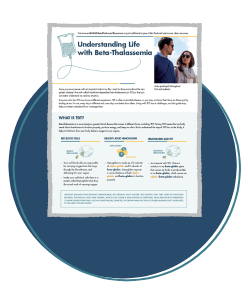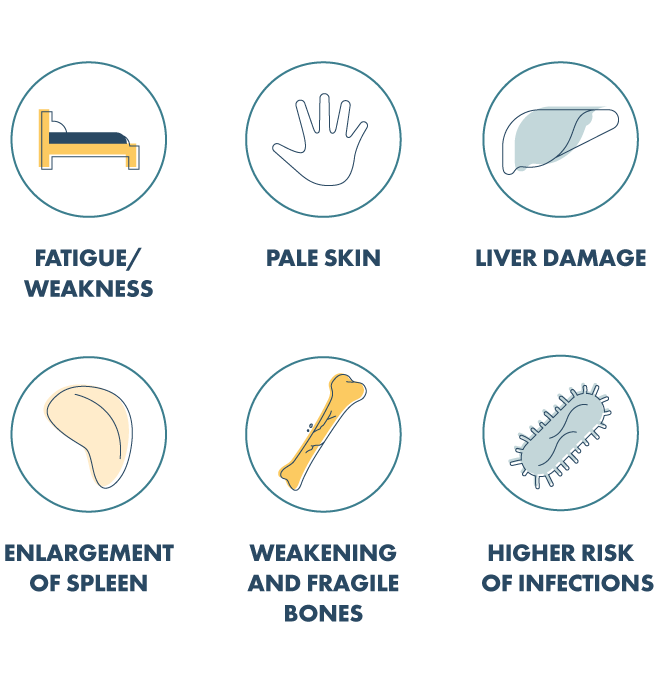

TRANSFUSION DEPENDENCE
of Beta-Thalassemia
Symptoms and Impact of Beta-Thalassemia
The symptoms of beta (β)-thalassemia differ from person to person based on how much beta-globin your body is actually producing. Some people with beta-thalassemia may get very sick when they are infants, whereas others do not experience problems until they get older. There are people who can go their whole lives without ever having any symptoms. The severity of each person’s thalassemia may depend on their particular genotypeGenotypeyour genetic makeup for any trait, which may be labeled with a pair of letters, each representing the copy of a gene inherited from one of your parents.
Many people with beta-thalassemia require regular blood transfusions, which may lead to excess iron building up in their organs (iron overload). High levels of iron in the heart and liver can lead to life-threatening complications. It is important to keep talking with your doctor about what works best for you and keeps you healthy.

Need help explaining the impact to others?
We’ve created an educational tool that you can share with others to teach them about beta-thalassemia and how it might affect you or your loved one’s daily life.
The Impact of Transfusion-Dependent Beta-Thalassemia (TDT)
TDT is the most serious form of beta-thalassemia that affects how much hemoglobin your body produces. Low hemoglobin results in anemia, and your organs may not get the oxygen they need to function properly. People with TDT experience severe anemia and rely on regular blood transfusions, typically given every 3 to 4 weeks, to survive. While these transfusions help with the symptoms of anemia, which include a wide range of symptoms from fatigue to weakness, they do not address the disease at the genetic level. If severe anemia is left untreated, it can lead to early death.
If transfusion-dependent beta-thalassemia (TDT) is not treated or treated inadequately, it can lead to:



“I’m working hard towards becoming a pastry chef, but sometimes my teacher thinks I’m just being lazy. Even when my beta-thalassemia slows me down, I will never let that be a reason I quit. This program is gonna take a lot out of me but, it's gonna be worth it. My doctor and I are working on what I can do to manage my disease and accomplish my goals.”
Aiden
 This website is developed by bluebird bio, Inc. and is intended for residents of the United States who are 18 years and older.
This website is developed by bluebird bio, Inc. and is intended for residents of the United States who are 18 years and older.